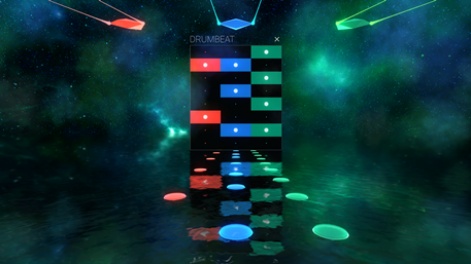The Big Indie Pitch is a regular event run by the makers of PocketGamer.biz. It sees indie developers engage in a speed-dating-styled pitching competition for fame and those sweet, sweet promotional packages.
The event gives indies three minutes to pitch their games to a panel of press, publishers and industry pundits. The judges then pick three winners and everybody gets valuable feedback.
The indie view
The Big Indie Pitch is getting bigger and bigger as we bring it to events all across the world. To give you an idea of what the event is like, who attends the events and the games on show, we've sat down with a number of past BIP contestants to offer their views.
Today, we're speaking to Highkey Games' Chetan Surpur, who submitted Audio Sky to the Very Big Indie Pitch at Pocket Gamer Connects San Francisco 2017 and came second.
PocketGamer.biz: Tell us a little about yourself and your indie studio - who is in the team and what are their inspirations?
Chetan Surpur: I’m Chetan Surpur, and my little indie studio is called Highkey Games. My teammate and long-time friend is Eric Rahman, who handles the business side of things and advises me on everything from design to architecture to presentations.
We’re also working with a brilliant New York-based musician, Craig Barnes, who makes all the music and helps with the audio design for the game, which is huge, seeing as it’s a music game.
We’re all driven by the power of music to inspire, heal, and transform. We’re excited about the intersection of music and games, and we look for beauty there.
Tell us about your latest project that you pitched at the competition.
Music has been a communal activity since the beginning of mankind. During festivals and gatherings, everyone would get together and play music and dance together.
It didn’t matter whether you’d never played music before, or played it every day of your life so far. Everyone participated, since the only way you could hear music was if you made it yourself. But with the recent advent of recorded music, something changed.
A great divide formed between those who played music at an expert level and everyone else. After all, why make music yourself if you can just listen to professionals who do it way better than you?
Nowadays, people listen to the radio and think, ‘That’s amazing. I can never do that’. They are intimidated, and most go their whole lives never even trying to play music of their own.
Our game, Audio Sky, is about bridging that divide. We want everyone, and that means everyone, to have a taste of the beautiful experience of playing music. Audio Sky is a multiplayer music game, in which you make music and play music that other people have made.
It’s easy to make a song in Audio Sky - sequence a drumbeat by dropping notes on a timeline, and layer on a few musical loops, which are collectible items in the game. Then, once you have a song, anyone in the world can play your song by playing the drumbeat that you sequenced.
Audio Sky will be available on mobile, and eventually on Mac, PC and VR.
How hard is it to survive as an indie developer working in mobile?
It’s definitely a challenge, and a huge risk. I’ve been running on savings for over a year now, and if wasn’t for the modest (and surprising) success of our first game Orbit, I would probably be doing something else by now.
Being an indie developer feels like sitting on a ticking time bomb that you’re groping in the dark trying to diffuse.
Fortunately, I’m working with Eric, who understands monetisation in the mobile market. We’ve made it a point (since I initially stupidly released the first version of Orbit without a single monetisation hook) to think about the money from the very beginning.
Of course, we’re pursuing our passions with our new game, but if we didn’t design the game to make money from the start, we’d have no chance of pursuing our passions for very long. It’s no easy task to survive as an indie developer in mobile, but I at least feel like we’re giving it a good shot.
In fact, we have the honour and pleasure of speaking about this at Casual Connect Seattle this year! Our talk will be available on YouTube after the conference.
How did you find the experience of pitching as a part of the Big Indie Pitch?
It was a very interesting experience to have just a few minutes within which to convey what we’ve been working on for a year and a half. I learned a lot, especially about how to make an impression in a tiny amount of time.

It was very useful to get feedback from the judges, who are journalists and publishers in the industry - not only their written feedback but also the feedback written on their faces as they played Audio Sky.
These are the people who can make or break the game when it launches, so it was encouraging to see that they were having a positive experience with the game as they played it for the first time.
What do you feel you have gained from the experience and what do you still hope to gain?
I had planned to personally play Audio Sky and show it so that both judges at the table could see the same screen, and I wouldn’t have to set up headphones for each, cutting into the already short time I had.
But right before the pitch, I decided to throw caution to the wind, and just let the judges play the game themselves. I discovered that the “aha” moment of the game, when you find that the visual cues have disappeared and you’re left playing the drumbeat all on your own, can only be experienced if you play the game yourself.
So I’ve since learned that the game will only make an impression if I let the player try it for themselves. It’s a very visceral experience, something that can’t be described or even watched; it has to be experienced.
What are your hopes for this game in the future and do you have any plans for any future projects?
If we launch the game with the full feature set we have in mind, including online multiplayer, I’ll be happy.
Beyond that, if the game is successful, I hope to build a team around the game to take it to the next level, and work with more musicians to get their unique feel into the musical loops in the game and give the players more to creatively play with.
Our eventual plan is to make Audio Sky into a platform for musical content creation and discovery, kind of like YouTube, but for music.
For now, though, we just have to finish this and get it out, and that’s more than enough to think about at the moment.
-----------
Want to show off your exciting new game? We host Big Indie Pitch events throughout the year, so be sure to keep an eye out on our events page for an event near you.
Upcoming BIPs include:
The Big Indie Pitch at Game Industry Conference in Poznan 2017 (October 5th 2017)
The Big Indie Pitch @ Jordan Games Summit 2017 (November 11th 2017)
The Big Indie Pitch @ G-STAR 2017 (November 16th - 18th 2017)
The Big Indie Pitch in Dundee 2017 sponsored by Amazon Appstore (November 30th 2017)
But there's more! For the first time ever this year we'll be hosting The Big Indie Awards 2017 in association with indieSky.
The Big Indie Awards marks the finale of a year of indie pitching and also offers a chance for both our pitchers and also ALL indie developers who may not have made it to our events to put their game forward for a chance of global recognition, some cold-hard cash and a trip to the awards final in Shenzhen, China!
You can register for The Big Indie Awards 2017 in association with indieSky right here.




















